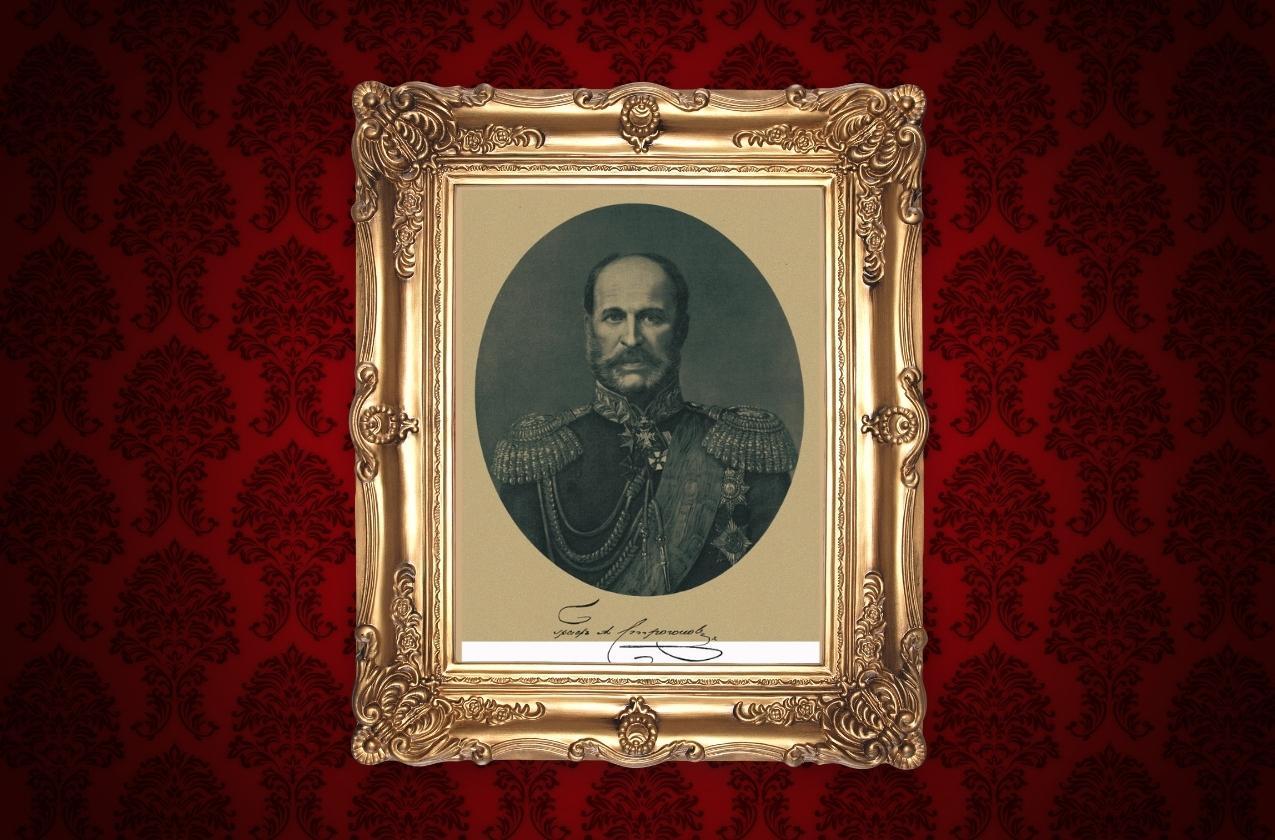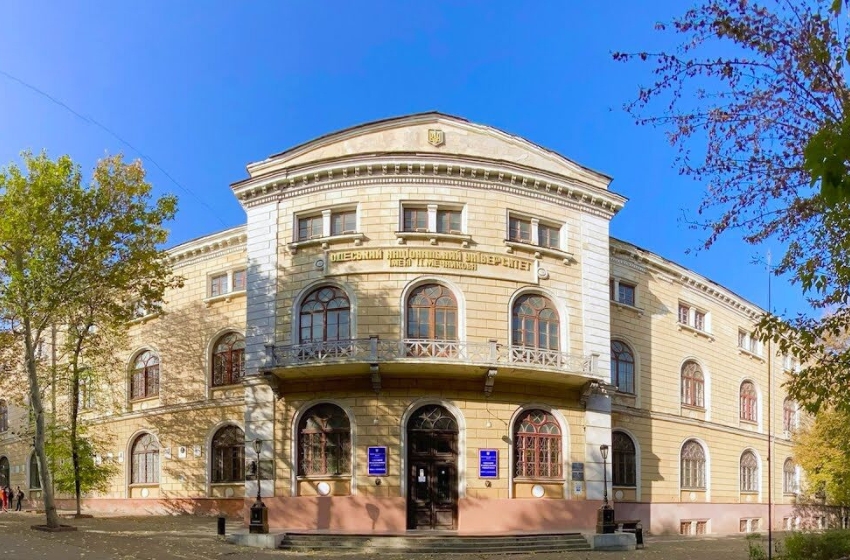The title "Honorary Citizen of Odessa" is the highest sign of gratitude to the citizens of Odessa. It began to be appropriated back in the days - since 1862. This title is awarded to persons of outstanding merit who have made a tremendous personal contribution to the development of Odessa and whose activities have received wide recognition among the citizens of Odessa. People can be awarded this title, regardless of their citizenship and residence.
Stroganov Alexander Grigorievich
He was born on January 11, 1796 (December 31, 1795, O.S.) in St. Petersburg in a noble family. As a child, he received an excellent education at home. He was studied at the Institute of the Corps of Railway Engineers. At the age of 16, he was promoted to ensign for success in science. He began his military service at his request in the artillery, took part in the pursuit of Napoleon's troops retreating from Russia in the liberation of the peoples of Europe. He was repeatedly awarded for the difference in battles.
In 1820, he was appointed aide-de-camp of His Imperial Majesty. In the same year, he married the daughter of the Minister of Internal Affairs Viktor Pavlovich Kochubei - Countess Natalya Viktorovna.

Since 1826, he carried out a number of emperor's orders, including diplomatic ones, and always successfully. Having distinguished himself in the Polish events of 1831, he received the rank of major general, was awarded and appointed to the emperor's retinue. He was a member of the interim government of the Kingdom of Poland. "For exemplary work" was awarded the Order of St. Anna, 1st degree.
Since January 1834 - Assistant Minister of Internal Affairs, since December - Adjutant General of Emperor Nicholas I. Since November 1836 - Governor-General of Chernigov, Poltava and Kharkiv. In 1839 he was appointed manager of the Ministry of Internal Affairs, at the same time he headed a number of committees and commissions. In 1840 A.G. Stroganov was awarded the rank of Adjutant General.
In 1841 - 1842 he studied various sciences in Paris, including even anatomy. The count paid particular attention to the theory of public administration, savings banks' organization, and railway communication arrangement, showing interest in factory legislation. All this subsequently influenced the policy pursued by him in the region entrusted to him.
By the beginning of the Crimean War - the military governor of St. Petersburg. He was repeatedly noted, “for blameless serviceâ€. Not long before the end of the military campaign, the emperor sent Stroganov to Odessa, to the post of the governor-general, which he held from 1855 to 1862.
The activities of the Governor-General were in the spirit of liberal Odessa. So, for example, in 1858 he turned to the Minister of the Interior with a proposal ... to guarantee the Jews "all the rights of the indigenous population" of the Empire. In essence, this meant: to revise Russia's age-old internal political traditions in relation to the Jewish population.
The fact is that back in 1791, Catherine II established the so-called "The Pale of Settlement" - the border of the territories of the Empire, outside of which Jews were prohibited from permanent residence (the list of "outlined" regions also included Novorossia). The semi-official attitude towards Jews as citizens with limited rights led to increased migration to the United States and their agricultural colonization of Argentina and Palestine. In response to state anti-Semitism, educated Jewish youth united in revolutionary organizations and parties, which created a danger to the regime in the opinion of the far-sighted Stroganov. But alas, the officials refused the Odessan.

It was Count Stroganov who invited Gustav Molinari to Odessa in 1860 with a course of lectures in which he argued the advantages of free labor over forced labour. These discussions preceded the famous reform of 1861 and the abolition of serfdom in Russia. Being a supporter of the reform, the count himself opposed the emancipation of peasants without land and publicly condemned the small size of the allotments, which were planned to be transferred to the former serfs. Indeed, in this case, the whole meaning of the reform was lost.
Alexander Stroganov is also known for his refusal to cooperate with the imperial secret police to capture revolutionaries in the territory entrusted to him. He did not arrest those accused of distributing Herzen's illegal The Kolokol newspaper, published abroad.
The Kolokol (the Bell) was the first Russian censorship-free weekly newspaper in Russian and French languages, published by Alexander Herzen and Nikolai Ogaryov in London (1857–1865) and Geneva (1865–1867). It had a circulation of up to 2500 copies. Despite being banned in Russia, it was well known and had a significant influence on the reformist and revolutionary movements of the 1860s
Such behaviour of the Governor-General smelled strongly of liberalism, given that the magazine mercilessly criticized him. Moreover, the count himself was a “devoted†reader of The Kolokol. A carefully intertwined collection of his numbers is still kept in the Odessa Regional Archives, where each copy is marked with a Stroganov ex-libris. The earl's handwritten marginal notes betray his avid interest in subversive publication. But this did not bother Herzen in publishing an open "Letter to Count Stroganov", in which he told Alexander Grigorievich little pleasant about himself. The indulgent Stroganov, in response, showed remarkable tolerance towards those who read and distribute this publication in Odessa.
In 1851 (even before his arrival in Odessa), the count insisted on building a railway to the city, proving that it was necessary for the development of commerce and military needs. For the implementation of the project, he allocated 100 thousand rubles. Emperor Alexander II even appointed Stroganov to the Railway Construction Planning Committee and the first long-awaited branch (they waited more than a dozen years and it ran only to Balta) was built in 1865.
With Stroganov, the activities of the Odessa branch of the Imperial Society of History and Antiquities, whose president he was for 21 years, noticeably intensified. On the initiative of Stroganov, in 1859, the line of the port-franco was removed, which had existed for almost half a century, and the city was forever united with its suburbs. His merit was also the preparation of the reform of urban public self-government.
On June 10, 1862, the Odessa merchant and bourgeois society, connected with the 50th anniversary of the Novorossiysk and Bessarabian Governor-General Count Alexander Grigorievich Stroganov, decided to grant him the title of the first citizen of the city of Odessa "forever". On August 2, with the highest permission, this decision was approved.

After retiring in August 1862, Alexander Grigorievich acquired a house on Primorsky Boulevard and lived in Odessa for another 29 years. He regularly attended all meetings of the City Council, participated in debates.
To the special merits of Alexander Stroganov belongs the opening in Odessa and the Novorossiysk University. Probably the fact that Alexander II was the father-in-law of Stroganov's son finally convinced the Tsar to proclaim the transformation of the Richelieu Lyceum into Novorossiysk University on June 10, 1862, (before that, it was planned to open the first higher institution in southern Russia in Nikolayev).
In 1863, following St. Petersburg and Moscow, the “Regulations on the public administration of Odessa†were introduced. Stroganov was elected the first mayor but refused this post according to this provision. He made the richest gift to the city - the Stroganov Foundation and today is the pride of the scientific library of the Odessa National University.
The Governor-General did a lot to improve the material well-being of the city. In 1880, he established a new tax of half a kopeck per pound of exported grain to pay for the costs of building bridges, a new water supply system, gaslighting, street paving.
He died on August 2, 1892 at the age of 97. The burial took place at the First Christian Cemetery. In one fence there were two monuments made of labrador and pink granite - over the graves of the count and his sister I. Poletika.





















